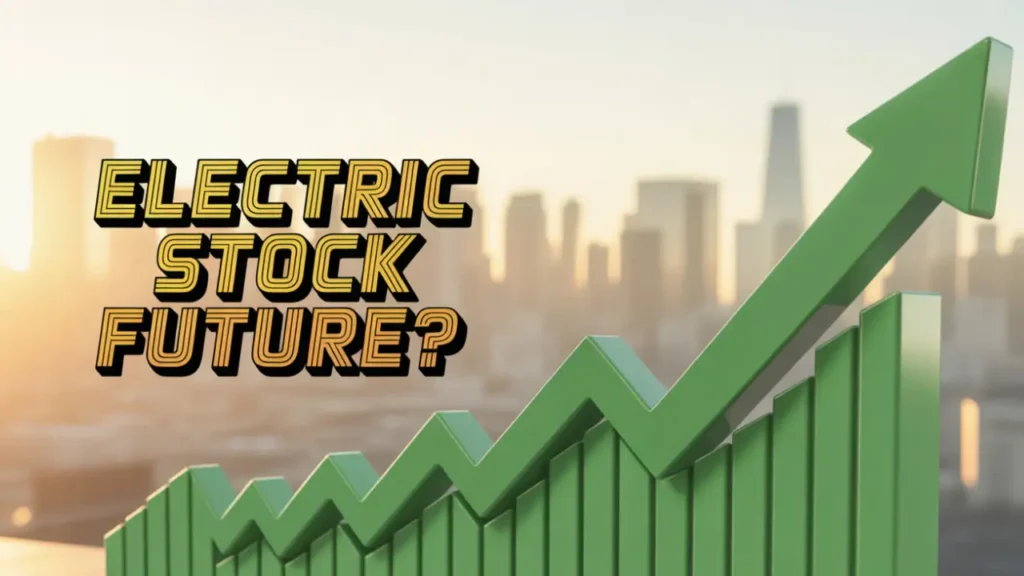Evans Electric, a Mumbai-based micro-cap company in the industrial repair services sector, has gained attention for its unusual blend of strong fundamentals and high volatility. As of August 1, 2025, the stock closed at ₹170, slightly down by 1.16% from its previous close of ₹172. It traded between ₹170 and ₹180 during the day. Though currently far below its 52-week high of ₹251.90, it remains comfortably above its 52-week low of ₹117.80.
Retail interest in this little-known stock continues to grow, especially after bonus share events and strong profitability. But the steep 27% fall in the last month has raised concerns about its stability and long-term risk profile. Evans Electric is often listed among “penny stocks” on retail platforms due to its low market cap and sub-₹200 price, but technically, it doesn’t qualify as a penny stock under ₹10.

Evans Electric: From Multi-Bagger to Correction
Evans Electric has delivered spectacular returns in recent years. According to data from MarketsMojo:
- 1-year return: +14.7%, outperforming its sector and benchmark indices
- 3-year return: ~750%, making it a multi-bagger
- 5-year return: ~209%, showing long-term strength
However, 2025 has been challenging, with the stock experiencing a sharp drop of about 27% in the past month alone. This volatility is not unusual for micro-cap stocks but does indicate the speculative nature of this investment. Notably, Evans trades at nearly 5.3 times the volatility of the Nifty 50, making it one of the most unstable micro-caps in the market.
Financials: Profits, Bonus Shares, and No Debt
Despite being a small-cap company with a market value of just ₹93–95 crore, Evans Electric has shown strong financial performance:
- Net profit for FY25 rose by nearly 50% to ₹7.57 crore
- Sales growth: 23–25% year-on-year
- ROE: ~28.8%
- ROCE: ~39%
- P/E ratio: ~12.3x (TTM)
- P/B ratio: ~3.6x
- Dividend yield: ~0.8–0.9% (last dividend ₹3.00/share)
- Debt-free: Zero debt on books (D/E ratio of 0.00)
The company has also rewarded shareholders through two 1:1 bonus share issues, one in February 2023 and another in December 2024. These actions, coupled with its high profitability, have supported investor confidence despite market corrections.
Ownership, Risks & Outlook: A Stock for Bold Investors
Evans Electric is tightly held, with:
- Promoters (led by Chairman Ivor Desouza) holding ~59.4%
- MD Nelson Lionel Fernandes owning ~14.9%
- Retail/Public investors holding the rest
- No institutional ownership (no mutual funds, FIIs, or DIIs)
The absence of institutional investors means lower liquidity and higher volatility. Sharp price movements are common in such stocks, especially when market sentiment changes quickly. Its strong fundamentals, including consistent profit growth and a clean balance sheet, make it attractive—but the micro-cap nature and limited trading volume make it unsuitable for conservative investors.
Outlook: Evans Electric could continue to reward bold investors willing to accept price swings and low liquidity. But those seeking stability and long-term predictability should approach with caution.
Conclusion
Evans Electric stands as a classic example of a high-risk, high-reward micro-cap stock. It offers impressive growth potential backed by solid numbers, but investors must be prepared for sudden corrections and thin trading volumes.
F.A.Q.
– Is Evans Electric a penny stock?
While Evans Electric is often listed among “penny stocks” on some retail platforms due to its low price and micro-cap status, it does not qualify as a traditional penny stock (which typically trades below ₹10). It is more accurately classified as a micro-cap, high-risk stock.
– Why is Evans Electric considered highly volatile?
Evans Electric trades at nearly 5.3 times the volatility of the Nifty 50, largely due to its low market cap (~₹93 crore), limited liquidity, and absence of institutional investors. This makes its price highly sensitive to small trading volumes and market sentiment.
– What kind of returns has Evans Electric delivered?
Evans Electric has delivered ~750% returns over the past 3 years, and ~209% over 5 years, making it a strong performer historically. However, it has recently declined by around 27% in just one month (July 2025), showing the risk side of its volatility.
– Does Evans Electric pay dividends?
Yes, the company has a modest dividend yield of ~0.8–0.9%. Its last dividend was ₹3.00 per share, with the ex-date in September 2024. It has also issued bonus shares twice in the past two years.
– Is Evans Electric a good investment for 2025?
Evans Electric may appeal to high-risk, aggressive investors who can tolerate sharp price swings. Its strong ROE, zero debt, and profit growth are positives. However, it’s not suitable for conservative or long-term investors due to its high volatility and lack of institutional backing.
Also read:-